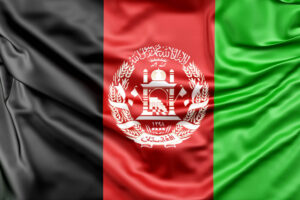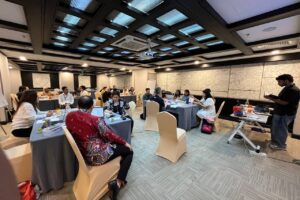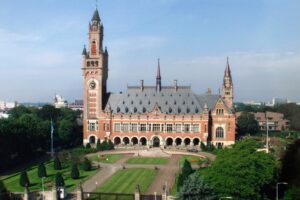
May 9, 2016 | News
Bangladesh President Abdul Hamid must stay the execution of opposition political leader Motiur Rahman Nizami, said the ICJ today.
On 5 May 2016, the Supreme Court of Bangladesh dismissed a petition by Motiur Rahman Nizami to review its previous decision confirming his death sentence.
He is now at imminent risk of execution.
“Bangladesh must stay this execution, and end its continued and unlawful use of the death penalty,” said Sam Zarifi, ICJ’s Asia-Pacific Director. “The death penalty is not justice and is the ultimate form of cruel and inhuman punishment.”
Motiur Rahman Nizami, a leader of the Jamaat-e-Islami party, was found guilty of crimes committed during the 1971 war for independence in Bangladesh, including genocide, torture, and the murder of intellectuals, and sentenced to death by the International Crimes Tribunal (ICT) in October 2014.
The Supreme Court confirmed this decision and sentence on appeal earlier this year, following which Motiur Rahman Nizami filed his review petition.
Thus far, four individuals have been executed based on convictions by the Bangladesh International Crimes Tribunal: Salahuddin Quader Chowdhury and Ali Ahsan Mohammad Mujahid were executed in November 2015; Muhammad Kamaruzzaman was executed in April 2015; and Abdul Qader Mollah was executed in 2013. Several others have been sentenced to death.
“The perpetrators of the atrocities committed during the 1971 war for independence must be brought to justice and held to account for their crimes,” said Zarifi.
“However, another execution on the basis of a flawed trial that is inconsistent with international human rights standards undermines justice, and must be stopped,” he added.
Bangladesh is party to most of the principal human rights treaties, including the International Covenant on Civil and Political Rights, which obliges it to respect the right to a fair trial.
The ICJ has previously raised concerns that trials before the ICT are not in compliance with Bangladesh’s international legal obligations, and international standards for fair trials.
According to the ICJ, there are serious procedural flaws at all stages: pre-trial release has been routinely and arbitrarily denied; witnesses have been abducted and intimidated; and there have been credible allegations of collusion between the Government, prosecutors and judges.
Background information
In a statement on 8 April 2016, the UN Office of the High Commission of Human Rights reaffirmed that trials before the ICT in Bangladesh did not met international standards of fair trial and due process, and that the imposition of a death sentence in such circumstances constitutes a violation of the right to life.
The ICJ opposes capital punishment in all cases without exception. The death penalty constitutes a violation of the right to life and the right not to be subjected to cruel, inhuman or degrading punishment.
In December 2014, the UN General Assembly adopted a resolution, for the fifth time since 2007, emphasizing that that the use of the death penalty undermines human dignity and calling on those countries that maintain the death penalty to establish a moratorium on its use with a view to its abolition.
A majority of 117 UN Member States voted in favor of a worldwide moratorium on executions as a step towards abolition of the death penalty.

May 9, 2016 | News
The ICJ is deeply concerned at the recent legal harassment of several Cambodian human rights defenders and perceived political opponents, which raises serious questions as to the impartiality of the investigators, prosecutors and judges involved.
The ICJ calls on the Government to immediately conduct an independent review of the decision to pursue these cases, to end the prosecution of those who have been charged if the allegations are found to be groundless or the proceedings to have been unlawful or abusive, to cease the use of judicial and prosecutorial processes to harass and intimidate human rights defenders and perceived political opponents, and to respect its international obligations under the Convention on the Privileges and Immunities of the United Nations.
“The decision to proceed with these cases should be subject to a careful and independent review and any charges that have resulted must be dropped if the allegations are found to be without merit or have been carried through unlawful or abusive procedures,” said Kingsley Abbott, International Legal Adviser for Southeast Asia with the ICJ.
“The strong appearance of bias present in these cases flies in the face of the absolute right of all accused to have their case considered by independent and impartial prosecutors and judges at every stage of the process,” he added.
The different proceedings all stem from allegations centered on an alleged affair between Khom Chandaraty (also known as Srey Mom) and Kem Sokha, acting leader of the opposition Cambodia National Rescue Party (CNRP).
After a voice recording appeared on social media, allegedly of a conversation between them, the Cambodian Counter-Terrorism Directorate of the Government’s Central Directorate for Security “invited” Srey Mom for questioning, which prompted her to seek human rights assistance from a leading Cambodian NGO, the Cambodian Human Rights and Development Association (ADHOC).
On 11 March 2016, the Counter-Terrorism Directorate questioned Srey Mom. She denied the suggestions she had a relationship with Kem Sokha and that she was the female voice on the recording.
On 19 April 2016, after having met with ADHOC on a number of further occasions, Srey Mom was asked in a closed session with a prosecutor at the Phnom Penh Municipal Court to answer allegations of having provided false testimony and of having engaged in prostitution.
On this occasion, Srey Mom admitted to a relationship with Kem Sokha.
On 22 April 2016, Srey Mom alleged in an open letter that ADHOC staff had attempted to persuade her to lie to the authorities.
On 2 May 2016, an Investigating Judge in Phnom Penh charged four staff members of ADHOC, Nay Vanda, Ny Sokha, Yi Soksan, and Lem Mony, with “bribery of a witness”.
A former staff member of ADHOC, Ny Chakrya, and a staff member of the Cambodia Office of the High Commissioner for Human Rights (OHCHR), Sally Soen, were also charged with being accomplices, notwithstanding Sally Soen’s immunity from prosecution under the Convention on the Privileges and Immunities of the United Nations.
The allegation of bribery appears to relate to the fact that ADHOC reportedly provided Srey Mom with a small sum of money to cover food and transport costs, including to attend questioning by judicial authorities.
“While Cambodia has a positive legal duty under international law to protect human rights defenders from attacks arising out of their work, these proceedings appear to be aimed at intimidating and silencing Cambodian civil society and are the latest in a series of laws and actions directed against them,” said Abbott.
Last year, the Government passed the Law on Associations and NGOs (LANGO), which Abbott stated would “severely restrict the ability of members of civil society to exercise their rights to freedom of association and expression which Cambodia has a duty to protect under its international obligations.” Abbott further stated that the Governments intention was to “…weaken the impact of NGOs, including human rights defenders.”
Under Article 12 of the United Nations Declaration on Human Rights Defenders, States have an obligation to take all necessary measures to ensure the protection of human rights defenders, including against any threats, pressure, retaliation or arbitrary action as a consequence of the legitimate exercise of their rights under the Declaration.
In other proceedings, the Phnom Penh Municipal Court summoned Kem Sokha to answer allegations of criminal defamation and two other members of the CNRP, Pin Ratana and Tok Vanchan, have been questioned about allegations of prostitution.
Political commentator, Ou Virak, has been summoned to appear in the Phnom Penh Municipal Court on 12 May 2016 to answer allegations of criminal defamation for expressing the view that the ruling Cambodian Peoples Party (CPP) was exploiting the alleged affair between Kem Sokha and Srey Mom.
On 24 April 2016, a CNRP commune chief, Seang Chet, was arrested and detained on charges of bribery after Srey Mom alleged Seang Chet had attempted to pay her mother US $500 to encourage her to deny the affair.
Read also:
Cambodia: the ICJ condemns Senate’s approval of draft Law on Associations and NGOs
Cambodia: approved NGO law poised to hobble the work of civil society
Cambodia: withdraw draft law on associations and non-governmental organizations – joint letter
Cambodia: ICJ and other rights groups urge end to NGO law
Contact
Kingsley Abbott, ICJ’s International Legal Adviser, t: +66 94 470 1345, e: kingsley.abbott(a)icj.org
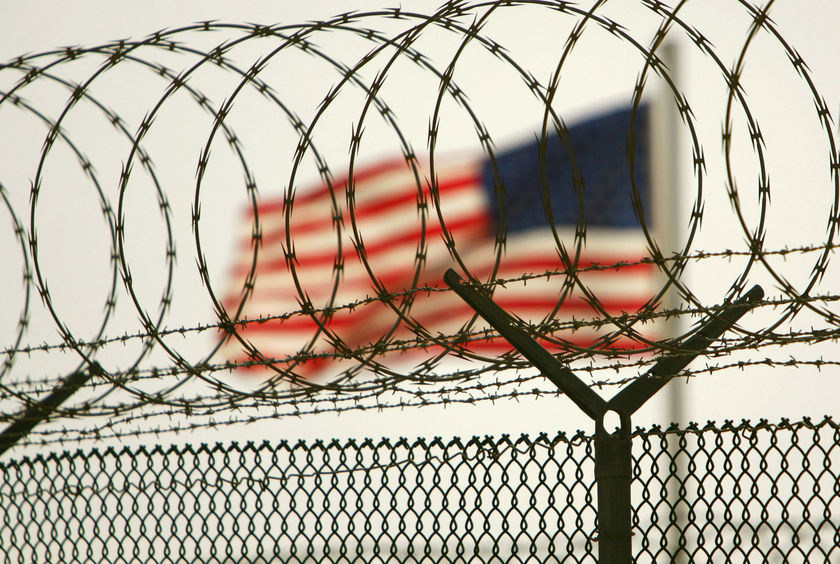
May 3, 2016 | E-bulletin on counter-terrorism & human rights, News
Read the 101st issue of ICJ’s monthly newsletter on proposed and actual changes in counter-terrorism laws, policies and practices and their impact on human rights at the national, regional and international levels.
The E-Bulletin on Counter-Terrorism and Human Rights provides hyperlinks to full texts of reports, statements, laws, court judgments and legal analysis. It aims at fostering an informed debate on the implications of counter-terrorism measures for the promotion and protection of human rights.
AFRICA & MIDDLE EAST
Egypt: Military courts try at least 7,400 civilians in unfair trials
Tunisia: Civil society coalition launches Uphold Rights While Fighting Terrorism campaign
Israel: Punitive home demolitions
AMERICAS
USA: Microsoft lawsuit concerning customers’ E-mail privacy
USA: Reform rules and procedure of military commissions
USA: Eleven Guantanamo detainees resettled in Senegal and Saudi Arabia
USA: Justice Against Sponsors of Terrorism Act engenders Saudi threats of retaliation
USA: FISC opinion offers insight to warrantless surveillance of American citizens
USA: Supreme Court decision clears way for using Iranian money to compensate terror victims
USA: E-mail privacy bill passed unanimously by House of Representatives
USA: Appeals court dismisses FOIA request about use of drones for targeted killings
USA: Lawsuit against creators of CIA interrogation programme proceeds
USA: Supreme Court approves changes to criminal procedure making it easier for the FBI to hack into computers
EUROPE & COMMONWEALTH OF INDEPENDENT STATES
UK: European Court of Human Rights finds no violation in Menezes shooting
UK: Report uncovers systematic cooperation with US drone strikes in Yemen
France: President withdraws plan for Constitutional reform stripping citizenship
France: Government proposes another extension of the state of emergency
Germany: Constitutional Court rules anti-terrorism law partially unconstitutional
Georgia: Constitutional Court rules surveillance legislation unconstitutional
Portugal: Constitutional Court denies appeal against extradition to Italy of CIA agent convicted for involvement in Abu Omar kidnapping
Russian Federation: Bill proposes introduction of misprision in criminal code
Turkey: President proposes to strip citizenship of supporters of terrorism
Turkey: Journalists detained for tweets
UNITED NATIONS & REGIONAL ORGANIZATIONS
EU: European Parliament approves Passenger Name Record directive
EU: Privacy Shield agreement criticized by EU regulators
UN: Group of 18 UN independent experts welcome Principles and Guidelines on Human Rights while Countering Terrorism in Africa
E-BULLETIN no. 101
AFRICA & MIDDLE EAST
Egypt: Military courts try at least 7,400 civilians in unfair trials
On 13 April, Human Rights Watch reported that military courts have tried at least 7,420 civilians since October 2014, when Law 136 for the Securing and Protection of Public and Vital Facilities, decreed by President al-Sisi in absence of a parliament, vastly extended their jurisdiction to essentially include the protection of all public property. Human Rights Watch cites a list provided by the independent Egyptian Coordination for Rights and Freedoms. Most defendants were sentenced after mass trials that violate fundamental due process rights. The list documents 324 cases, the largest of which involved 327 defendants, at least 86 of which are children. Thousands of civilians were retroactively referred to military trials for crimes they allegedly committed before al-Sisi imposed the law, which did not involve the military forces.
NGO Statement
Tunisia: Civil society coalition launches Uphold Rights While Fighting Terrorism campaign
On 28 April, a coalition of 46 national and international human rights organizations published an open letter, launching a campaign addressed to all Tunisians entitled ‘No to Terrorism, Yes to Human Rights’. The campaign stresses that combatting terrorism and the duty to respect human rights are not mutually exclusive, nor should one be met at the expense of the other.
NGO Statement 1
NGO Statement 2
Israel: Punitive home demolitions
On 31 March, the High Court of Justice issued a judgment instructing the revocation of a demolition order, issued for the home of the parents and siblings of a suspect in a terrorist attack in Jerusalem under Regulation 119 of the Defence (Emergency) Regulations 1945, which gives military commanders the power to order house demolitions as a punitive measure. In the case, the judges in the majority found respectively: a) that the young man could not be considered to be living in the home; or, b) that his diminished tie of residency entailed that the decision to demolish his family’s house was disproportionate, since they could not be alleged to have had constructive knowledge of the planned act. On 8 April, the United Nations Office for the Coordination of Humanitarian Affairs (OCHA) reported that 124 Palestinians, including 60 children, had been made homeless in a single day as a result of demolitions in the West Bank. Figures released by OCHA show a four-fold increase in demolitions in the West Bank compared to last year.
NGO Statement
OCHA Statement
Media report 1
Media report 2
AMERICAS
USA: Microsoft lawsuit concerning customers’ E-mail privacy
On 14 April, Microsoft filed a lawsuit in the Federal District Court in Seattle against the Department of Justice regarding the privacy of their customers’ E-mails. In its filing, the company claims that the 1986 Electronic Communications Privacy Act is unconstitutional, violating the company’s First and their customers’ Fourth Amendment Rights by preventing Microsoft from notifying its customers about Government requests for their E-mails through secrecy orders. The issue arises from the interaction of the law’s delayed notification provision (so-called “sneak and peak” warrants that authorize the authorities to delay notice to the target of surveillance, but not indefinitely) with a provision that allows the Government to compel, via warrant and without notice to the target, the contents of communications that have been stored for more than 180 days. In the 18 months leading up to March 2016, Microsoft received 5,624 federal demands for customer information or data, nearly half of which were accompanied by secrecy orders, 1,752 of which included no time limits. Microsoft’s lawyers claim that a review of the high percentage of secrecy orders granted showed that the prosecutors had often relied on the vague standard that there was “a reason to believe” that disclosure might hinder an investigation, the NY Times reports.
Microsoft filing
Media report
Blog post 1 Blog Post 2
USA: Reform rules and procedure of military commissions
On 14 April, the Pentagon submitted to Congress its proposals for amendments to the rules and procedures that govern the military commissions at Guantanamo Bay, purported to enhance the commissions’ efficiency. One of the proposals would permit for the defendants to appear by video-teleconference rather than in person, denying them the right to be present and confront their accuser in court, as guaranteed by the Sixth Amendment to the Constitution. Other proposed changes include allowing civilian lawyers to represent the defendants instead of military ones; allowing the primary judge in the case to appoint another judge to consider and rule on certain motions; and making it easier for the Government to convert a case from one seeking the death penalty to one seeking life in prison.
Proposed amendments
Blog post 1
Blog post 2
USA: Eleven Guantanamo detainees resettled in Senegal and Saudi Arabia
On 4 April, following a notification at the end of March to Congress that it intends to resettle nearly a dozen detainees held at Guantanamo Bay, the Department of Defense (DoD) announced the transfer to Senegal of Libyan nationals Salem Abdu Salam Ghereby and Omar Khalif Mohammed Abu Baker Mahjour Umar. On 16 April, the DoD announced the transfer to Saudi Arabia of nine Yemeni detainees, namely Ahmed Umar Abdullah Al-Hikimi, Abdul Rahman Mohammed Saleh Nasir, Ali Yahya Mahdi Al-Raimi, Tariq Ali Abdullah Ahmed Ba Odah, Muhammed Abdullah Muhammed Al-Hamiri, Ahmed Yaslam Said Kuman, Abd al Rahman Al-Qyati, Mansour Muhammed Ali Al-Qatta, and Mashur Abdullah Muqbil Ahmed Al-Sabri. The men were brought to Guantanamo about 14 years ago and were held there since without charge or trial. Eighty detainees remain at Guantanamo.
DoD announcement
Media report 1
Media report 2
Blog post 1
Blog post 2
USA: Justice Against Sponsors of Terrorism Act engenders Saudi threats of retaliation
The Justice Against Sponsors of Terrorism Act, a bill with wide bipartisan support that is currently pending in the Congress, drew attention when the NY Times in mid-April reported that Saudi Arabia is threatening to sell off hundreds of billions in US assets in retaliation if it becomes law. The newspaper reports that according to both Government officials and congressional aides from both parties, the US Administration has been lobbying Congress to block the bill’s passage, warning of diplomatic and economic fallout from the legislation. If passed, it would allow private plaintiffs to sue foreign governments for committing or abetting terrorist acts inside US territory. Families of the 9/11 terrorist attacks have been using the courts to try to hold members of the Saudi royal family, Saudi banks and charities liable for their alleged financial support for terrorism. Those efforts have largely been stymied, in part because of a 1976 law that gives foreign nations certain immunities from lawsuits in American courts. The bill intends to exclude from such immunity cases where nations are found culpable for terrorist attacks that kill Americans on US soil.
NY Times article
Blog post 1
Blog post 2
Media report 1
Media report 2
Media report 3
Media report 4
USA: FISC opinion offers insight to warrantless surveillance of American citizens
On 19 April, the Office of the Director of National Intelligence released a redacted version of an opinion of the Foreign Intelligence Surveillance Court (FISC) dated 6 November 2015, one of the first to incorporate a special advocate as required by the USA Freedom Act. The court’s opinion offers insights into the functioning of the ‘minimization’ procedures of the Federal Bureau of Investigation (FBI) linked to warrantless surveillance under section 702 of the Foreign Intelligence Surveillance Act, which authorizes the National Security Agency (NSA) to collect communications between foreign targets and Americans without individualized FISC approval as long as a “significant purpose” of the programme is acquiring foreign intelligence. In 2008, the FISC had held that this warrantless surveillance satisfies the Fourth Amendment, stating any intrusion on those interests is mitigated by restrictions on the use and retention of incidentally acquired information about Americans (so-called ‘minimization’, the procedures for which are not public). The FISC opinion offers valuable insight into how section 702 is being used as a loophole to collect information on American citizens without a warrant. The opinion holds that this complies with the Constitution and the FISA Amendment Act 2008, but noted concerns about a series of incidents in which the FBI and NSA deviated from court-approved limits on their surveillance activities.
Court opinion
Blog post 1
Blog post 2
Blog post 3
Media report
USA: Supreme Court decision clears way for using Iranian money to compensate terror victims
On 20 April, the Supreme Court in Bank Markazi v Peterson decided that Congress had not violated the separation of powers when it passed the Threat Reduction and Syria Human Rights Act in 2012, which includes a section specifically allowing access to frozen Iranian funds in a New York bank account “in order to satisfy any judgment to the extent of any compensatory damages awarded against Iran for damages for personal injury or death caused by” certain acts of terrorism. The Supreme Court held that the federal statute does not violate the separation of powers even if it directs a particular result in a single pending case, as Congress may require “a court to apply a new legal standard in a pending prejudgment enforcement proceeding”. Among those affected by the ruling are the family members of 241 American servicemen killed in the 1983 terrorist bombing of US Marine Corps barracks in Beirut. A federal district court in Washington had found Iran liable for financing and sponsoring the attack, and a federal district court in Manhattan found that the victims could attach $ 1.75 billion USD in blocked Iranian assets to enforce their judgments. On 25 April, Iran’s Foreign Minister said the country would seek to sue the US at the International Court of Justice in The Hague to prevent distribution of the impounded assets.
Court opinion
Law
Media report 1
Media report 2
Blog post
USA: E-mail privacy bill passed unanimously by House of Representatives
On 27 April, the House of Representatives voted unanimously to pass the Email Privacy Act, which if now approved by the Senate also would substantially revise the 1986 Electronic Communications Privacy Act, requiring law enforcement agencies to obtain search warrants from a judge in order to gain access to personal messages and files stored on the servers of companies. Currently, enforcement agencies are allowed to get E-mails older than 180 days and other files using a subpoena, without the need for a judicially authorized warrant. Furthermore, under the amended legislation, law enforcement agencies will no longer be able to indefinitely prevent disclosure of the existence of the warrant to the target of surveillance.
Bill
Media report
Blog post
USA: Appeals court dismisses FOIA request about use of drones for targeted killings
On 21 April, the US Court of Appeals for the DC Circuit upheld a dismissal for a Freedom of Information Act (FOIA) request for information about the US Government’s use of drones for “targeted killings” that had been filed by the American Civil Liberties Union. The appeals court agreed with the Central Intelligence Agency (CIA) that the requested documents were properly classified and exempt from FOIA requests because they pertain to intelligence activities and/or foreign activities of the USA.
Court opinion
Blog post
USA: Lawsuit against creators of CIA interrogation programme proceeds
On 22 April, a federal court in Spokane ruled that it would allow a lawsuit to go forward, in Salim and others v. Mitchell and Jessen, against the two psychologists who as federal contractors designed, implemented and oversaw the Central Intelligence Agency’s (CIA’s) rendition, detention and interrogation program that tortured at least 119 men between 2002 and 2008, denying the defendants’ motion to dismiss. In contrast with previous occasions where victims have tried to hold their torturers accountable in American courts, the Government has not invoked state secrets privilege in the case.
NGO statement 1
NGO statement 2
Blog post
USA: Supreme Court approves changes to criminal procedure making it easier for the FBI to hack into computers
On 28 April, the Supreme Court approved changes to the Federal Rules of Criminal Procedure that would make it easier for the Federal Bureau of Investigation (FBI) to hack into computers, by allowing a magistrate to issue a warrant to search or seize an electronic device regardless of where it is if the target of the investigation is using anonymity software. Previously, a judge could not approve a warrant if the investigator did not know where the computer was, because it might be outside the court’s jurisdiction. The Supreme Court ruling will also allow the FBI to hack into computers that have already been hacked. Unless Congress modifies or rejects the proposed changes, the policies will go into effect on 1 December.
Court order
Media report
EUROPE & COMMONWEALTH OF INDEPENDENT STATES
UK: European Court of Human Rights finds no violation in Menezes shooting
On 30 March, the Grand Chamber of the European Court of Human Rights ruled in Armani da Silva v. the United Kingdom that the respondent State did not fail to uphold its procedural obligation to effectively investigate the Menezes shooting under Article 2 of the European Convention on Human Rights, which protects the right to life. In July 2005, two weeks after the terrorist attack on the London public transport, Jean Charles de Menezes was mistaken by law enforcement for a suicide bomber and killed in the mistaken belief that he was about to set off a bomb. His family brought the case to the European Court since none of the individual officers implicated in the killing were prosecuted. In its previous jurisprudence on putative self-defence, the European Court had endorsed a hybrid subjective/objective test, requiring an honest belief that is perceived for good reasons to be valid at the time, but which subsequently turns out to be mistaken. In Armani da Silva, however, it appears the Court has moved to a pronouncedly more subjective test, indicating that the “existence of ‘good reasons’ should be determined subjectively” and that “the principal question to be addressed is whether the person had an honest and genuine belief that the use of force was necessary”. Accordingly, the Court took no objection to the subjective approach of English criminal law and found no violation of Article 2 of the Convention.
Judgment
Blog post
UK: Report uncovers systematic cooperation with US drone strikes in Yemen
A VICE News report published on 7 April details how, for the past decade, British intelligence and special forces have systematically cooperated with US and Yemeni agencies in a covert fight against al-Qaeda in Yemen, assisting with identifying and locating human targets for American drone strikes from 2010 onwards. Furthermore, the report says they also mentored Yemen’s National Security Bureau to observe and fix targets ahead of American drone strikes. The report alleges that members of a British special forces unit were seconded to the Secret Intelligence Service, allowing them to covertly continue to feed in to the US drone programme despite the fact that in 2012 British military trainers were forbidden from sharing intelligence with American forces in response to human rights concerns raised by the latter’s use of “signature strikes”.
Media report 1
Media report 2
France: President withdraws plan for Constitutional reform stripping citizenship
On 30 March, French President Hollande said that he will no longer move forward with his controversial plan to reform the country’s Constitution that would have included an amendment to deprive French citizenship or rights attached to it from dual nationals convicted of terrorism. In a short speech, he said he intended to end debate on the issue, citing the National Assembly’s and Senate’s failure to agree on an amendment.
Media report 1 (FR)
Media report 2
Blog post
France: Government proposes another extension of the state of emergency
On 20 April, French Prime Minister Manuel Valls announced in an interview that the Government will seek to extend the state of emergency by a further two months after it is set to expire on 26 May, in view of the Euro 2016 football competition and the Tour de France cycling competition taking place in June and July. The extension of the state of emergency, which began after the terrorist attacks of 13 November 2015, must be voted in Parliament. The second prolongation of the state of emergency on 16 February had drawn criticism from UN experts, the NHRI and civil society groups.
Media report 1 (FR)
Media report 2
Germany: Constitutional Court rules anti-terrorism law partially unconstitutional
On 20 April, Germany’s apex court ruled that while the authorization of the Federal Criminal Police Office to carry out covert surveillance measures is in principle compatible with fundamental rights under the German Basic Law, in some respects the current design of the investigative powers does not satisfy the principle of proportionality. It ruled various provisions within the overall legal structure unconstitutional, but the law will remain in place subject to restrictions. The court ruled, among other things, that more clarity is needed on how collected surveillance data is shared with third parties, including both other German agencies as well as foreign authorities.
Court press release
Media report 1
Media report 2
Georgia: Constitutional Court rules surveillance legislation unconstitutional
On 14 April, the Constitutional Court of Georgia ruled that legislation allowing security agents to have direct, unrestricted access to telecom operators’ networks to monitor communications, is unconstitutional. The key issue in the case was the continued access by security agencies to so-called “black boxes” installed in the infrastructure of telecom companies, allowing mass collection and monitoring of data in real time. According to media reports, the Court considered that safeguards introduced in 2014 that mandate authorization by the Personal Data Inspector to active eavesdropping on a target cannot be deemed a sufficient and effective mechanism of oversight.
Media report 1
Portugal: Constitutional Court denies appeal against extradition to Italy of CIA agent convicted for involvement in Abu Omar kidnapping
On 22 April, the Constitutional Court of Portugal denied the appeal of Sabrina De Sousa against a January ruling that she should be handed over to Italy. De Sousa, who holds dual American and Portuguese citizenship, is one of 26 Americans convicted in absentia by Italian courts for her alleged role in the February 2003 kidnapping and rendition of Hassan Mustafa Osama Nasr, also known as Abu Omar. At the time of the kidnapping, she was working undercover for the Central Intelligence Agency as a diplomat in Milan. She resigned from the agency in 2009 and had avoided trial by leaving Europe, but returned to Portugal last year to be closer to her family. Portuguese courts have stated that she should have the right to a new trial in Italy, or at least the opportunity to present new evidence and witnesses in an appeal. However, media reports Armando Spataro, one of the Italian prosecutors who helped secure her criminal conviction, saying he saw no legal grounds for a new trial.
Media report 1 (Portuguese)
Media report 2
Media report 3
Russian Federation: Bill proposes introduction of misprision in criminal code
A bill introduced in the State Duma on 7 April would among other things introduce the concept of international terrorism into the Criminal Code; the financing of which would be punished by ten to 15 years’ imprisonment. Significantly, the bill also includes a provision criminalizing the failure to report crimes of a terrorist nature (‘misprison’); misprision previously existed as an offence under the Soviet criminal code. Furthermore, the bill also includes a provision requiring the deprivation of citizenship for those convicted of terrorism; and it proposes to reduce the age of criminal responsibility to 14 for terrorist crimes.
Media report 1 (Russian)
Media report 2 (Russian)
Turkey: President proposes to strip citizenship of supporters of terrorism
On 5 April, President Erdogan said in a speech to a group of lawyers in Ankara that Turkey should consider stripping citizenship from supporters of terrorism. He did not specify the targets of his comments. In the past, Erdogan has stated that those who Turkey accuses of supporting terrorism, including critical journalists and academics, are no different from the terrorist themselves.
Media report 1
Media report 2
Turkey: Journalists detained for tweets
On 30 April, news editor Hamza Aktan was detained after a raid on his house by counter-terrorism police. Following interrogation, he was referred to the prosecutor’s office at Bakirkoy Court. Media reports say his lawyers claim that Aktan was arrested due to tweets in which he shared media reports about civilians killed during the on-going conflict with the Kurdistan Workers’ Party (PKK). On 23 April, Dutch-Turkish journalist Ebru Umar was briefly arrested for tweeting comments critical of President Erdogan. She was released a day later after being questioned for 16 hours, but is not allowed to leave the country and must report to police twice weekly.
Media report 1
Media report 2
UNITED NATIONS & REGIONAL ORGANIZATIONS
EU: European Parliament approves Passenger Name Record directive
On 14 April, the European Parliament adopted the directive on Passenger Name Records (PNRs), which requires EU and foreign airline carriers to provide national authorities with data about passengers travelling to and from the EU. Between EU governments internally, PNR transfers will be based on a voluntary system of requests. EU governments must establish a “passenger information unit” to collect the data from the airlines and to handle any exchanges with other national authorities. Under the scheme, PNR data will be made anonymous after six months and retained for five years.
European Parliament press release
Media report
EU: Privacy Shield agreement criticized by EU regulators
On 13 April, Article 29, the pan-European Working Party of data regulators, criticized the EU-US Privacy Shield agreement, which would allow companies to transfer EU citizens’ data for processing or storage within the EU. The Working Party expressed concerns about the possibility for bulk data collection, noting that limits are broadly defined and as such cannot count as targeted data collection; it also expressed concerns about the strength and independence of the US ombudsman who would deal with European complaints. The Working Party’s opinion will form the basis from which national data regulators in EU Member States will set out their laws and practices.
Working Party press release
Media report 1
Media report 2
AU-UN: Group of 18 UN independent experts welcome Principles and Guidelines on Human Rights while Countering Terrorism in Africa
On 7 April, speaking ahead of a panel discussion of the African Commission on Human and Peoples’ Rights, a group of eighteen UN independent experts welcomed the Principles and Guidelines on Human Rights while Countering Terrorism in Africa, adopted by the African Commission last year. The UN experts called on all African governments to fully implement the Commission’s recommendations in order to respect human rights in the context of fighting terrorism.
UN Press Statement
Principles and Guidelines
Find this E-Bulletin and more information about the ICJ, the rule of law and human rights on our website: icj2.wpengine.com. Please send feedback about the E-Bulletin to icjcounter-terrorism@icj.org.
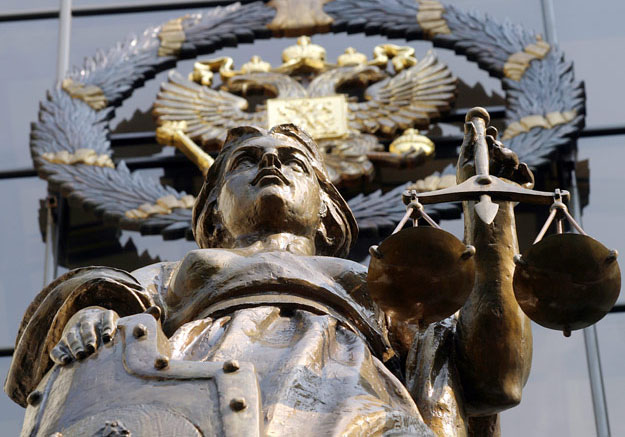
May 3, 2016 | Новости, Статьи
Международная комиссия юристов (МКЮ) обеспокоена сообщениями о ненадлежащем допросе адвоката Марины Мошко в качестве свидетеля, а также проведении обысков в её квартире и адвокатском кабинете следователями Следственного комитета Российской Федерации («СК РФ») и сотрудниками ФСБ России по Санкт-Петербургу и Ленинградской области.
Адвокат была допрошена по уголовному делу своей подзащитной, Наталии Кольцовой, связанному с преступлением в сфере экономической деятельности.
Проведение следственных действий в отношении адвоката в ходе следствия по делу его или её подзащитного противоречит международному праву и стандартам, а также принципам адвокатской тайны, которые закреплены в российском законодательстве и международном праве.
В данной связи МКЮ призывает российские правоохранительные органы воздержаться от любых действий, которые затрудняют доступ к адвокату и препятствуют осуществлению права на эффективную защиту, в том числе от ненадлежащего допроса адвокатов в качестве свидетелей и обыска жилых и служебных помещений адвокатов.
Российские власти обязаны соблюдать национальное законодательство и соответствующие международно-правовые обязательства, принятые на себя государством, а также принять меры по обеспечению эффективной защиты адвокатов от любого вида запугивания и необоснованного вмешательства.
В ходе обысков, санкционированных Басманным районным судом города Москвы, были осмотрены адвокатские досье клиентов Марины Мошко, а также произведена фотосъёмка досье одного из клиентов, который является подзащитным адвоката по уголовному делу (см. ниже).
Наряду с обысками помещений, занимаемых адвокатом, следователи провели очную ставку между адвокатом и матерью её подзащитной.
После этого Марину Мошко отстранили от участия в деле в качестве защитника, поскольку она сама была допрошена как свидетель.
Это далеко не первый случай такого рода.
В одном из своих последних докладов под названием «Становление сильной адвокатуры в Российской Федерации» МКЮ выразила обеспокоенность в связи со «случаями допроса адвокатов с целью их отстранения от защиты одной из сторон».
В докладе был сделан вывод о том, что «допрос адвоката в качестве свидетеля является грубым вмешательством в работу адвокатов и явным нарушением российского законодательства и международных стандартов, касающихся роли и независимости юристов».
МКЮ напоминает о том, что Кодекс профессиональной этики адвоката Российской Федерации возбраняет адвокату давать свидетельские показания об обстоятельствах, которые стали ему известны в связи с исполнением профессиональных обязанностей (статья 6 пункт 6).
Закон «Об адвокатской деятельности и адвокатуре в Российской Федерации» (статья 8 пункт 2) и Уголовно-процессуальный кодекс Российской Федерации (статья 56 часть 3) исключают возможность допроса адвоката в качестве свидетеля по делу подзащитного.
Далее, проведение обыска в помещении адвоката и нарушение неприкосновенности адвокатских досье противоречит международному праву и стандартам адвокатской тайны, которые являются неотъемлемой частью права на уважение частной жизни, а также права на справедливое судебное разбирательство.
В частности, принцип 22 Основных принципов ООН, касающихся роли юристов, предусматривает, что «правительства признают и обеспечивают конфиденциальный характер любых сношений и консультаций между юристами и их клиентами в рамках их профессиональных отношений».
Комитет по правам человека ООН также подчеркнул, что данная практика может составить нарушение обязательства государств по обеспечению права на справедливое судебное разбирательство, предусмотренное Международным пактом о гражданских и политических правах (МПГПП), в частности, в тех случаях, когда «адвокатов освобождают от обязанности сохранять профессиональную тайну и принуждают к даче свидетельских показаний под угрозой лишения свободы».
Очевидно, что рассматриваемое дело является именно тем случаем, когда в результате допроса адвоката в качестве свидетеля её отстранили от защиты стороны по делу, а также была нарушена адвокатская тайна. Данная практика отвода адвокатов препятствует доступу обвиняемого к эффективной юридической помощи и может подорвать эффективность защиты, в нарушение права на справедливое судебное разбирательство, которое защищается, в частности, статьёй 6 Европейской конвенции по правам человека и статьёй 14 МПГПП.
Контакты:
Роушин Пиллей, директор Региональной программы МКЮ по Европе, roisin.pillay(a)icj.org
Тимур Шакиров, правовой советник Региональной программы МКЮ по Европе, temur.shakirov(a)icj.org
Дополнительная информация:
Марина Мошко представляет интересы Натальи Кольцовой, подозреваемой по делу об организованном преступном сообществе, предположительно созданном Дмитрием Зарубиным, владельцем бутика Cartier. Зарубин был задержан осенью 2015 года по обвинению в создании организованного преступного сообщества, по версии следствия, ввозившего в Россию дорогостоящую электронику под видом дешёвых строительных материалов. Наталья Кольцова обвиняется в руководстве одним из структурных подразделений организованного преступного сообщества. Сообщается о том, что проведение обысков связано с представлением интересов Натальи Кольцовой.
МКЮ известно о том, что Совет Адвокатской палаты Ленинградской области направил в Генеральную прокуратуру Российской Федерации письмо, в котором поднимается проблема проведения обысков в отношении адвокатов.
Доклад МКЮ «Становление сильной адвокатуры в Российской Федерации»
Russia-Marina Moshko statement-News-Web story-2016-RUS (история на русском, PDF)
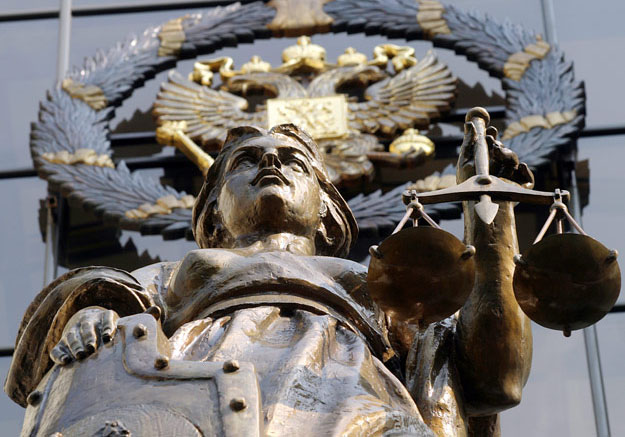
May 3, 2016 | News
The ICJ is concerned at the reported improper interrogation as a witness of lawyer Marina Moshko and searches of her apartment and office by investigators of the Investigative Committee of Russia together with officers of the St. Petersburg and Leningrad Region Federal Security Service.
The interrogation was in connection with a criminal case against her client, Natalia Koltsova, related to alleged criminal business activities.
Targeting a lawyer in the investigation of the lawyer’s client runs contrary to international law and standards, and to principles of lawyer-client confidentiality enshrined in both Russian and international law.
The ICJ therefore calls on the law enforcement authorities to refrain from any measures which obstruct access to a lawyer and the right to an effective defence, including improper interrogation of lawyers as witnesses, and searches of lawyers’ premises.
The Russian authorities must uphold Russian law and the country’s international legal obligations on this matter and must take steps to ensure that lawyers are effectively protected against any form of harassment or improper interference.
During the searches, authorized by the Basmannyi District Court of Moscow, the files Marina Moshko’s clients were examined and photographs were taken of one file, which contained evidence in the same criminal case in which Marina Moshko is acting for the defence (see additional information below).
In addition to the searches of the lawyer’s premises, the investigators conducted a “confrontation” (a form of investigatory interview) between the lawyer and her client’s mother.
Marina Moshko was thereafter excluded from representation of her client as she was herself considered to be a witness in the case.
This case is hardly the first of its kind.
In a recent report entitled Towards a Stronger Legal Profession in the Russian Federation, the ICJ expressed concern at “cases of interrogations of lawyers in order to exclude them from representing a party to the proceedings”.
The report concluded that “[i]nterrogation of a lawyer as a witness constitutes a serious interference with the work of lawyers in clear contradiction to Russian legislation and international standards on the role and independence of lawyers.”
The ICJ recalls that the Russian Federation Code of Professional Ethics of Lawyers prohibits lawyers from making witness statements about any facts known to him or her in the context of professional activities (Article 6 (6)).
Both the Law “On advocates’ activities and advokatura in the Russian Federation” (Article 8 (2)) and the Russian Criminal Procedure Code (article 56 (3)) prohibit summoning lawyers as witnesses in cases in which they represent clients.
Furthermore, searches of lawyers’ premises and interference with clients’ files are contrary to international law and standards on lawyer-client confidentiality, which is an element both of the right to respect for private life, and of the right to a fair trial.
In particular, the UN Basic Principles on the Role of Lawyers, in Principle 22, stipulate that: “[g]overnments shall recognize and respect that all communications and consultations between lawyers and their clients within their professional relationship are confidential”.
The UN Human Rights Committee has also underscored that such practices may breach the obligation of States to ensure the right to a fair trial under the International Covenant on Civil and Political Rights (ICCPR), particularly where “lawyers are released from their obligation of professional confidentiality and obliged to testify or face the risk of imprisonment”
This case apparently represents such an instance in which a lawyer is excluded from representing a party, and lawyer-client confidentiality is breached, through questioning her as a witness. Such exclusions interfere with a defendant’s access to effective legal representation and may damage the effectiveness of the defence, contrary to the right to fair trial protected, inter alia, by Article 6 of the European Convention on Human Rights and Article 14 of the ICCPR.
Contact:
Róisín Pillay, Director, Europe Programme, roisin.pillay@icj.org
Temur Shakirov, Legal Adviser, Europe Programme, temur.shakirov@icj.org
Additional information:
Marina Moshko represents Natalia Koltsova, a suspect in the case on a criminal group allegedly created by Dmitry Zarubin, owner of the Cartier boutique. Dmitry Zarubin was arrested in autumn 2015 and charged with creation of an organized criminal group which brought expensive electronic goods as cheap building materials. Natalia Koltsova is charged with heading one of the units of the alleged criminal group. These searches are reportedly related to the representation of Natalia Koltsova.
The ICJ understands that the Council of the Chamber of Lawyers of Leningrad Region has addressed a letter to the Prosecutor General of the Russian Federation regarding this problematic case of the searches of lawyers.
Read also ICJ’s Report Towards a Stronger Legal Profession in the Russian Federation
Russia-Marina Moshko statement-News-Web story-2016-RUS (story in Russian, PDF)






